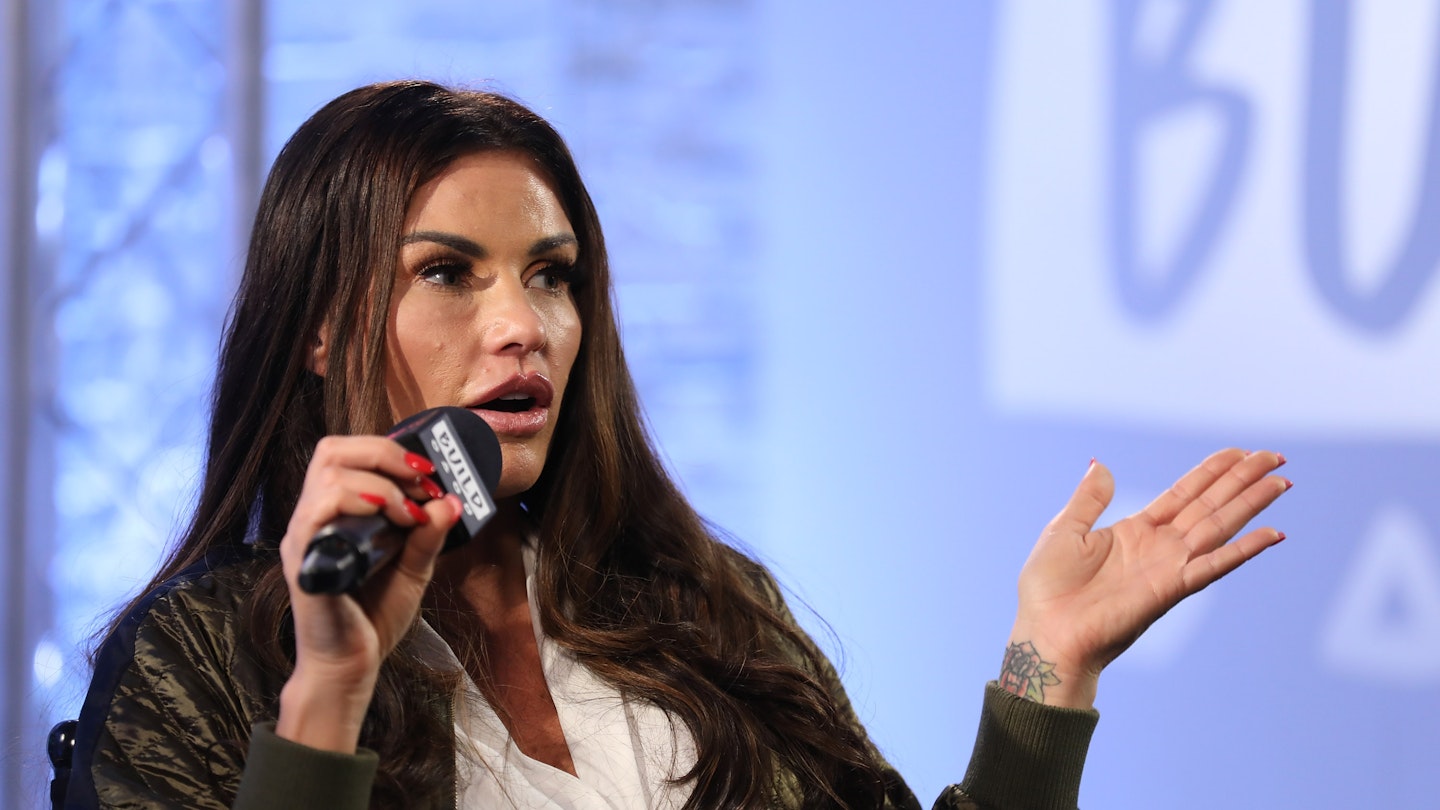Tabloids will always have an appetite for Katie Price. Since the start of her career over twenty years ago, the ex-glamour model - formerly known as Jordan - has never been far from the headlines. (Sometimes through her own provocation, sometimes not). This week is no different - it just so happens she’s in the news for jetting to Turkey to get her third face lift, liposuction and a Brazilian bum lift all in the same day. Inspired, apparently, by her on-off boyfriend Kris Boyson calling her fat. It’s no surprise, then, that this morning the tabloids were poking fun at Katie because she has had the audacity to actually eat something post-op.
‘Katie Price gorges on 900 calorie melted cheese omelette and fried avocado chips just days after having her fat sucked out with lipo op,’ The Sun Online hysterically screamed, after Katie posted a video of her meal to her Instagram story. (The Mirror also ran the same story.) It is crudely mocking: while the site are totally guessing the calorie count of the meal - Katie said in the video, ‘How nice is this healthy food? And look at these, avocado fries... Delicious. And my nice juice... My way to a new healthy me.’ But God forbid Price making an effort to be healthy. ‘The meal could be more unhealthy than Katie realised,’ the article sneers, before then guessing the magic 900 calorie number (‘depending how many eggs and how much cheese was used’), which is - as we’re reminded - ‘almost half of a female’s daily recommended calories.’ (News flash: as a woman, or man, you can eat more or less than your recommended calories!)
While I was marginally encouraged to see that fat-shaming was largely unacceptable at the tabloid newspaper I previously worked at, simply repackaging it as food-shaming is equally worrying. An estimated 1.5million people in the UK live with eating disorders according to mental health organisation Beat – and stigma around eating is a factor that cannot be ignored as a contributing factor to that. The insidious emotional attachments thrust upon our food choices – the pleasure, the guilt; "good" and "bad" foods, as if anything could be so binary; what we are "allowed" and when and how much – have an everyday impact on our sense of self. It's bad for us – science says so. Shaming has a negative effect, research says, especially on children and, crucially, it does not prompt weight loss or a change in habits for the better.
It is - quite obviously - never okay for a woman to be food shamed. Yet, it has a well-documented history. Journalist Sophie Wilkinson garnered huge support for her piece about being shamed for eating in public back in 2014. Just last week Grazia's online fashion and beauty editor, Hannah Banks-Walker, pleaded that she is "tired of reading about what other women eat". Food and dieting have, for decades, become not just hierarchical but tyrannical in their influence on women and female culture. Calories are especially contentious – for some of us, they're petrifying. As someone who has oscillated between starving myself and bulimia, I should know.
What someone else is eating is no one else's business, in short, because, just like telling a person they are ‘too fat’ or ‘too thin’, you simply don't know the effect it is going to have. Ultimately – celebrity or nobody, Katie Price or Kate Middleton – nobody deserves to feel shit for eating their lunch. And no, it doesn’t matter how many calories it contains.
